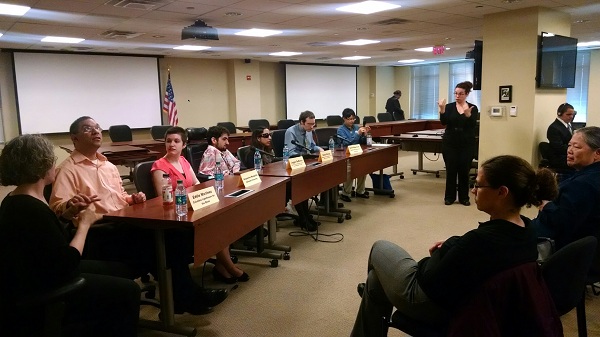Last week, FCC Chairman Tom Wheeler announced proposals to move the Commission forward on two important communications access issues for Americans with disabilities. It is a primary objective of the Commission to strive toward better access to information and communication technology for people with disabilities.
To that end, the FCC recently cohosted a forum focused specifically on accessibility issues facing young adults with disabilities. From this event, the Commission’s Accessibility and Innovation Initiative learned many lessons about the daily challenges facing this community.
The Community Forum on Accessible Information and Communication Technology was cohosted by the Washington Metro Disabled Students Collective and took place at the U.S. Access Board. A panel of young adults with disabilities discussed their experiences regarding the accessibility of information and communication technologies. During the small group breakout sessions, students discussed the challenges they face. A representative from each group presented the top challenges discussed accompanied by proposed solutions.

We learned that obtaining instructional materials in braille in a timely fashion continues to be a challenge for blind students. For deaf students, the challenge is accessing online videos with quality captions, whether for educational or social media purposes. People with cognitive disabilities frequently encounter websites that are difficult to understand or navigate. Deaf-blind persons have difficulty finding access to TV programs with captioning and description that is presented as electronic text readable with a braille display.
Young adults face various accessibility challenges, but they also agree that advancements in information and consumer technologies have given them easier access to tools and materials that improve their educational, professional, and personal lives.
During the event, Access Board staff members explained how to file comments in its proposed rulemaking proceeding to update regulations under Section 508 of the Rehabilitation Act. The Act makes sure that federal agencies use accessible technologies, whether developed or procured. In addition, FCC staff members gave a presentation on the rights and procedures under the 21st Century Communications and Video Accessibility Act.
Thanks to this forum, we gained a better understanding of information and communication technology accessibility challenges young people face today and a deeper appreciation of how the FCC’s work matters in the real world.